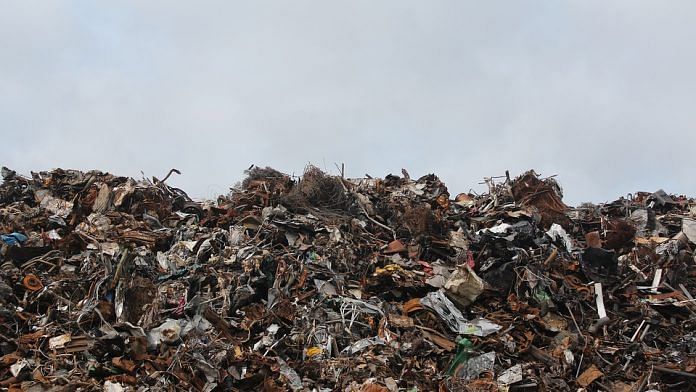
- A food-tech company in Mumbai is converting farm food waste into preserved produce using dehydration technology.
- Dehydrating goods such as vegetables and meat keeps nutrients at peak level and boosts food security for local communities.
- Solar-powered food preservation could prove vital in tackling global food waste, with 931 million tonnes going to landfill each year.
- S4S Technologies is a member of The Circulars Accelerator Cohort 2021 on UpLink.
An electricity-free food dehydrator that enables people in rural areas to preserve their produce for up to a year without chemicals has been created by a food-tech company based in Mumbai.
S4S Technologies offers a range of solutions to convert farm food waste into preserved produce using their patented solar-powered dehydration technology.
Its products include a solar conduction dryer that uses conduction, convection and radiation to keep nutrients at peak level and therefore boost food security for the community.
Tackling the food waste problem
Preserving goods could help reduce the 931 million tonnes of food worldwide that goes wasted each year, according to the UN Environment Programme’s Food Waste Index Report 2021. In India alone, this was estimated to be 68.7 million tonnes in 2019.
Using the solar conduction dehydrator, farmers and rural workers can process and preserve a variety of perishable goods including vegetables, fruits, spices, legumes, fish and meat – goods which are an integral part of nutrition and food security.
The preserved food retains 45% more nutrition and better colour, flavour and hygiene that drying in the open sun, the company claims.
Being solar-powered, the dehydrator has zero operating costs, and the technology is currently used in more than 1,200 farmer cooperatives across eight countries.
Boosting food production
Energy is key to boosting food production and reducing food waste in rural communities across the world. However, access to electricity is often expensive and limited, leading to crop and harvest losses.
As such, S4S’s solar-powered food dehydration technology could prove vital in developing countries, where 40% of food losses happen at post-harvest and processing levels, according to the UN Food and Agriculture Organization (FAO).
This is in contrast to industrialized countries, where more than 40% of food is wasted at retail and consumer levels, the FAO adds.
Working towards a circular economy
S4S Technologies is one of 17 innovative companies taking part in The Circulars Accelerator Cohort, led by Accenture, in partnership with Anglo American, Ecolab, Schneider Electric and in collaboration with the World Economic Forum’s UpLink digital crowdsourcing platform.
The Circulars Accelerator is a six-month programme that provides participants with mentoring, networking opportunities and investor engagement in order to hasten a global transition to a circular economy.
This article was first published in the World Economic Forum.
Subscribe to our channels on YouTube & Telegram
Why news media is in crisis & How you can fix it
India needs free, fair, non-hyphenated and questioning journalism even more as it faces multiple crises.
But the news media is in a crisis of its own. There have been brutal layoffs and pay-cuts. The best of journalism is shrinking, yielding to crude prime-time spectacle.
ThePrint has the finest young reporters, columnists and editors working for it. Sustaining journalism of this quality needs smart and thinking people like you to pay for it. Whether you live in India or overseas, you can do it here.